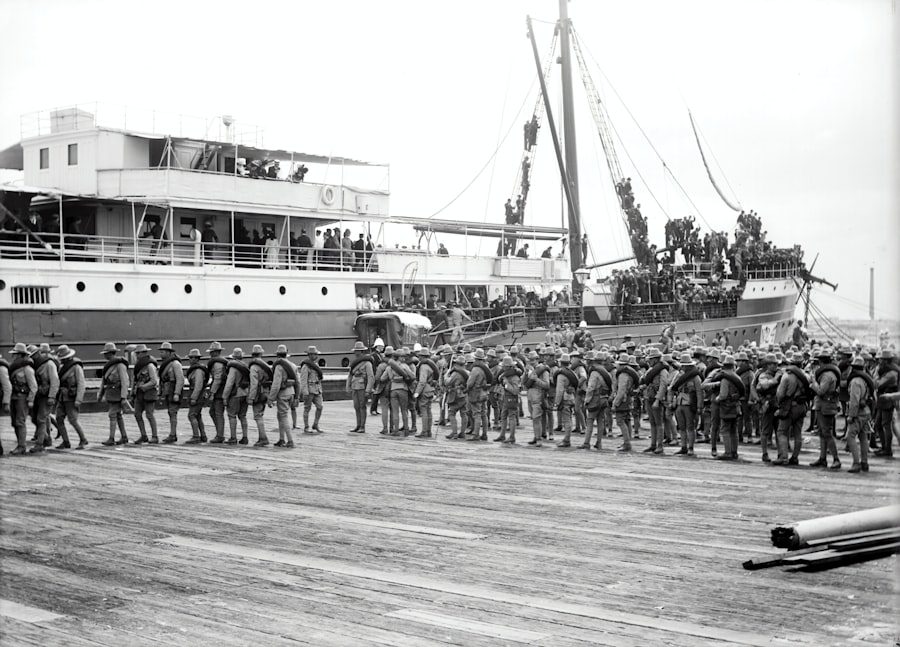Tariffs, defined as taxes imposed on imported goods, have been a fundamental aspect of international trade for centuries. They serve multiple purposes, including protecting domestic industries, generating government revenue, and influencing trade balances. The imposition of tariffs can be a double-edged sword; while they may bolster local economies by shielding them from foreign competition, they can also lead to increased prices for consumers and strained international relations.
The debate surrounding tariffs often centers on their implications for liberty and prosperity, raising questions about the balance between protecting national interests and fostering free trade. The historical context of tariffs reveals their complex role in shaping economies and societies. From the mercantilist policies of the 16th century to the protectionist measures of the Great Depression, tariffs have been employed as tools of economic strategy.
In contemporary discussions, tariffs are often viewed through the lens of globalization, where interconnected economies challenge traditional notions of sovereignty and economic independence. As nations grapple with the consequences of their tariff policies, it becomes essential to examine how these measures impact not only economic outcomes but also the broader principles of liberty and prosperity.
Key Takeaways
- Tariffs have historically impacted liberty and prosperity
- Economic effects of tariffs on trade and prosperity are significant
- Tariffs have political implications on liberty
- Social impact of tariffs on prosperity is a key consideration
- Tariffs play a role in international relations and liberty
The Historical Impact of Tariffs on Liberty and Prosperity
Historically, tariffs have played a pivotal role in defining the economic landscape of nations. In the early days of the United States, for instance, tariffs were a primary source of federal revenue and a means to protect nascent industries. The Tariff of 1789 was one of the first acts passed by Congress, aimed at generating income for the federal government while simultaneously fostering domestic manufacturing.
However, this protective measure also sowed seeds of discord, particularly in agrarian states that relied on imported goods. The tension between agricultural and industrial interests highlighted the delicate balance between protecting local economies and ensuring equitable access to goods. The impact of tariffs on liberty is equally significant.
During the 19th century, the debate over tariffs became a contentious political issue, with proponents arguing that protective tariffs were essential for national growth and independence. Conversely, opponents contended that such measures infringed upon individual freedoms by limiting consumer choice and raising prices. The Civil War era further complicated this dynamic, as tariffs became intertwined with issues of state rights and economic autonomy.
The historical trajectory of tariffs illustrates how economic policies can influence not only prosperity but also the fundamental liberties of citizens.
The Economic Effects of Tariffs on Trade and Prosperity

The economic ramifications of tariffs are multifaceted, affecting both domestic markets and international trade dynamics. On one hand, tariffs can provide a temporary shield for local industries, allowing them to grow without the pressure of foreign competition. For example, the imposition of tariffs on steel imports in the United States aimed to protect domestic steel manufacturers from cheaper foreign products.
This protectionist approach can lead to job creation within specific sectors, fostering a sense of economic security among workers. However, the broader economic effects often tell a different story. Tariffs can lead to retaliatory measures from trading partners, resulting in trade wars that disrupt global supply chains and increase costs for consumers.
The U.S.-China trade conflict serves as a contemporary example; tariffs imposed on Chinese goods led to higher prices for American consumers and strained relations between the two nations. Economists argue that while certain industries may benefit from protectionist policies in the short term, the long-term consequences often include reduced competitiveness and innovation due to a lack of market pressure.
The Political Implications of Tariffs on Liberty
The political landscape surrounding tariffs is fraught with tension, as these measures often become battlegrounds for broader ideological conflicts. Tariffs can be wielded as instruments of power by governments seeking to assert control over economic outcomes. In democratic societies, this raises questions about accountability and representation; when tariffs are enacted without sufficient public discourse or consideration of their impacts, they can undermine democratic principles.
Moreover, the politicization of tariffs can lead to polarization among citizens. Supporters may view tariffs as necessary for protecting national interests and jobs, while opponents may argue that they infringe upon free market principles and individual liberties. This division can manifest in electoral politics, where candidates leverage tariff policies to galvanize support from specific constituencies.
The political implications extend beyond domestic borders; international relations can be strained when nations perceive tariff measures as aggressive or unfair, leading to diplomatic tensions that threaten global stability.
The Social Impact of Tariffs on Prosperity
The social consequences of tariffs are often overlooked in discussions focused primarily on economic metrics. Tariffs can exacerbate social inequalities by disproportionately affecting low-income households that spend a larger share of their income on goods subject to increased prices due to tariffs. For instance, when tariffs are imposed on consumer electronics or clothing, it is often lower-income families who bear the brunt of higher costs, limiting their access to essential goods.
Furthermore, tariffs can create social divisions within communities as industries are protected at the expense of others. In regions where certain sectors thrive due to protective measures, there may be a sense of prosperity; however, this can come at the cost of other industries that suffer from reduced competition. The resulting economic disparities can lead to social unrest and discontent among those who feel marginalized by government policies favoring specific groups over others.
The Role of Tariffs in International Relations and Liberty

Tariffs as Leverage in International Relations
For example, countries may impose tariffs as leverage in trade talks or to express discontent over political issues. This dynamic underscores the intersection between economic policy and geopolitical strategy; tariffs can serve as both a means of asserting national sovereignty and a source of tension in diplomatic relations.
The Implications for Liberty
The implications for liberty are profound. When nations resort to tariff measures as a means of exerting power or influence, they risk undermining the principles of free trade that have historically fostered cooperation and mutual benefit among countries.
Navigating the Complexities of Global Trade
The rise of protectionism can lead to isolationist policies that restrict not only economic exchange but also cultural and social interactions between nations. As countries navigate these complex relationships, the challenge lies in balancing national interests with the broader ideals of liberty and cooperation that underpin global trade.
The Ethical Considerations of Tariffs and Liberty
The ethical dimensions surrounding tariffs raise important questions about fairness and justice in economic policy. When governments impose tariffs, they must consider not only the immediate benefits to specific industries but also the broader implications for consumers and international partners. Ethical considerations come into play when evaluating whether it is justifiable to protect certain sectors at the expense of others or to impose costs on consumers for the sake of national interests.
Moreover, there is an ethical responsibility for governments to engage in transparent decision-making processes regarding tariff policies. Citizens should have access to information about how these measures will affect their lives and livelihoods. When tariff decisions are made behind closed doors or without public input, it can erode trust in government institutions and lead to feelings of disenfranchisement among citizens.
Ethical governance requires a commitment to balancing competing interests while ensuring that policies promote not only economic prosperity but also social justice and individual liberties.
Balancing Tariffs with Liberty and Prosperity
The intricate relationship between tariffs, liberty, and prosperity necessitates a nuanced approach to policy-making. As nations grapple with the challenges posed by globalization and shifting economic landscapes, it is essential to strike a balance that protects domestic interests while fostering international cooperation. Policymakers must consider the long-term consequences of tariff measures on both economic outcomes and individual freedoms.
In navigating this complex terrain, it is crucial to engage in open dialogue with stakeholders across various sectors—businesses, consumers, labor groups, and international partners—to ensure that tariff policies reflect a comprehensive understanding of their impacts. By prioritizing transparency and inclusivity in decision-making processes, governments can work towards creating an environment where both liberty and prosperity thrive in harmony.


